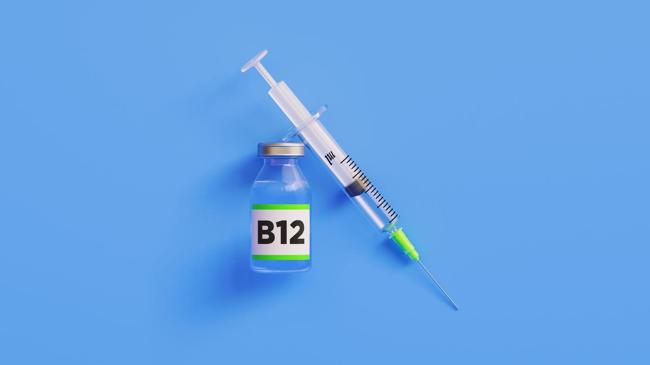Summary
Cholesterol tests check the components of fat in your blood and compare them to normal ranges. Your clinician might also use ratios to compare different types.
Source: The Conversation on MSN.com

AI News Q&A (Free Content)
Q1: What is a blood cholesterol ratio and why is it important for assessing cardiovascular health?
A1: A blood cholesterol ratio typically refers to the ratio of total cholesterol to high-density lipoprotein (HDL) cholesterol. It is calculated by dividing the total cholesterol value by the HDL cholesterol value. This ratio helps clinicians assess the risk of cardiovascular disease, as a higher ratio indicates a higher risk. Health organizations, such as the American Heart Association, recommend keeping the total cholesterol/HDL ratio below 5:1, with an optimal target of 3.5:1 or lower. This measure provides a more accurate risk assessment than total cholesterol levels alone.
Q2: How do nutrition deficiencies impact cholesterol levels and related health risks?
A2: Nutrition deficiencies, particularly in essential nutrients like vitamin D and zinc, can influence cholesterol metabolism and related health risks. For example, vitamin D deficiency has been associated with increased insulin resistance and adverse lipid profiles, as seen in adolescent populations. Zinc deficiency may also affect lipid metabolism and immune function, which can indirectly impact cholesterol levels. Proper nutrition is critical for maintaining healthy cholesterol ratios and overall cardiovascular health.
Q3: What are the most common types of nutrition deficiencies that can affect cholesterol metabolism?
A3: Common nutrition deficiencies impacting cholesterol metabolism include deficiencies in vitamin D, vitamin B12, and zinc. Vitamin D deficiency is linked with insulin resistance and altered lipid profiles, while vitamin B12 deficiency can lead to anemia and neurological issues that may further influence metabolic health. Zinc deficiency affects multiple systems, including immune function and skin health, and is common worldwide, affecting up to 2 billion people. These deficiencies underscore the importance of a balanced diet for maintaining optimal cholesterol and metabolic health.
Q4: What does the latest research suggest about the relationship between vitamin D status, liver fat, and cholesterol ratios in adolescents?
A4: Recent research from a 2025 study found that in adolescents, changes in vitamin D status significantly interact with liver fat to influence cholesterol ratios and insulin resistance. Adolescents with declining or insufficient vitamin D levels, especially those with higher liver fat, showed worsening insulin resistance and unfavorable triglyceride to HDL cholesterol ratios. This effect was particularly pronounced in Hispanic adolescents, highlighting the importance of monitoring both vitamin D status and liver health for managing cholesterol ratios in youth.
Q5: How does glucose availability during nutritional transitions affect cholesterol metabolism, according to recent studies?
A5: A 2020 study demonstrated that during nutritional transitions, such as fasting-refeeding or weaning, glucose availability—not changes in insulin or glucagon—was the primary factor sensitizing hepatic AMP-activated protein kinase (AMPK) activity. AMPK is a key metabolic regulator that helps maintain cellular energy balance and influences lipid and cholesterol metabolism. These findings highlight that the body's adaptation to changes in nutrient availability, especially glucose, plays a crucial role in cholesterol regulation.
Q6: What are the clinical consequences of untreated vitamin B12 deficiency, and how might this relate to cholesterol and overall metabolic health?
A6: Untreated vitamin B12 deficiency can lead to a spectrum of symptoms, from fatigue and anemia to neurological impairments like memory problems and poor muscle function. Severe deficiency can contribute to reduced heart function and even permanent neurological damage. Since vitamin B12 is essential for red blood cell formation and neurological health, its deficiency may indirectly worsen metabolic and cardiovascular outcomes, potentially affecting cholesterol profiles through broader impacts on systemic health.
Q7: How prevalent is zinc deficiency globally, and what measures are effective in preventing it to support healthy cholesterol ratios?
A7: Zinc deficiency affects up to 2 billion people worldwide and is mainly caused by reduced dietary intake. It impairs immune function, skin health, and may disrupt lipid metabolism. Preventive measures include increasing dietary zinc intake through foods like oysters, meat, beans, and nuts, and agricultural interventions such as zinc biofortification of crops. Ensuring adequate zinc status is important for maintaining healthy cholesterol ratios and supporting overall metabolic health.
References:
- Cholesterol - https://en.wikipedia.org/wiki/Cholesterol
- Malnutrition - https://en.wikipedia.org/wiki/Malnutrition
- Zinc deficiency - https://en.wikipedia.org/wiki/Zinc_deficiency
- Vitamin B12 deficiency - https://en.wikipedia.org/wiki/Vitamin_B12_deficiency





